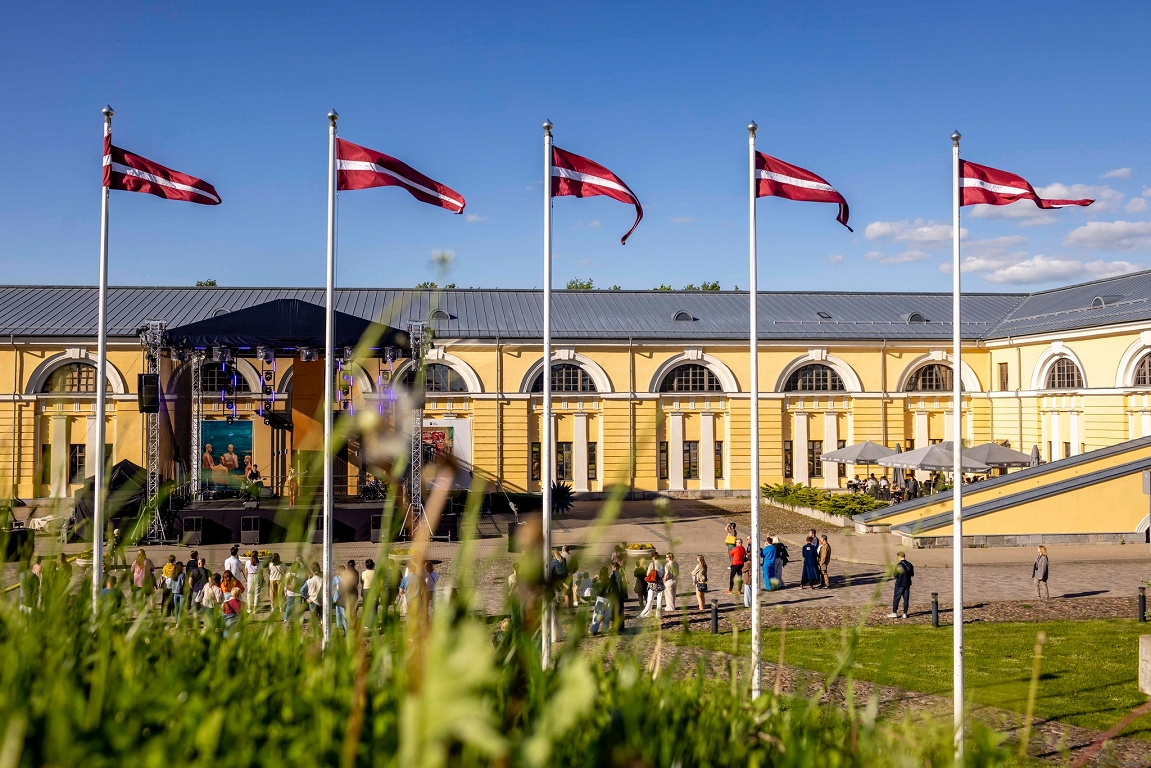The lonely century. All Casa & Telefonino, we fight remotely against imaginary enemies

The isolation has multiplied the conflicts: divided between rickering intangible tribes, we try to put together the fragments of our ego
Until seven to eight years ago I had a large group of friends: a novelty for me, lonely to high school. Everything started with the university: the semesters passed between study classrooms, pauses-centers and exams from exams, once finished, left me in the center of the small community born from the sharing of the transition to adulthood. We organized parties and holidays, we supported ourselves in the dark moments: For the first time in my life I felt I was part of something collective, plural. Gradually, then, that group started losing pieces. From about fifteen we have passed to ten. Then six, four, two. And it was not the effect of different habits, of the physiological passing of time. The tensions and breakages between us have always occurred in chat, and for almost non -existent reasons.
I was the main responsible of the end of this kind of election family. It is I who, repeatedly, slipped into obsessions and annoyances: I caused, and attacked, made out, blocked. DAt Solo, behind a keyboard, I made sure to return to the solitude in which I grew up. If today I look back I don’t know if I really wanted it: I am clear the blood in my head, the desire to let off steam, when the behavior of others devoted from my expectations. But I also know that these reactions have always occurred in the absence of the other, within an indirect communication: it was when I found myself only in front of the screen that the conflicts, in me, died. Instant messaging allowed me to be cowardly and together with tyrannical: It was simple and exciting to lash out against someone made only of letters, let me explode with intolerance. To break a relationship that lasted years it was enough for me to press sending.
In the previous stages of this journey of contemporary solitude we have explored the technological and relational mutations of what someone already calls the antisocial century: now I would like to underline its political repercussions. We have already said it: today it is difficult to feel alone, even if, in fact, we are, because ours is a crowded insulation. The others are, virtually, and perhaps even more than before, but above all interpretations, projections, pretexts.
The conflict thrives: closed in our bubbles – of beliefs and interests – we face, supporting us The unwritten instructions of the platforms, which feed on our clashes to the bitter end, of our unavailability to mediate. The aggressive impulse can be freed without the obstacle of the face of the other: an accusation or a sarcastic ironing cannot be dampened, inhibited, by the disappointment of a look, by the bewilderment of the fold of the mouth, from the vulnerability caught in the change that changes. Empathetic refusal is braked, it often becomes impossible: it does not need, it does not work, it does not pay, in the game of social networks, especially when there are stable and identity beliefs to divide us.
In the basic structure of the digital citizen, a system all makes others offer themselves as impersonal targets: we do not really see the consequences of our cynicism, our livery, our fury. Inhumanize is not complicated, extreme: there is no need to be monsters. It is comfortable, fast, trivial: we all do it more or less. In a time of empty and anxieties, we use the media sacrifice of others to obtain surrogates for the serenity that we are missing, trying to re -aggregate, for a moment, the fragments of our self.
Some ties, like the one with parents and of couple, become stronger: others, the « intermediates », have been swept away
The platforms have recodeed many of our experiences, including political ones. The commitment, activism and public debate are now shaped by the rules of spaces of interaction and self -representation which, everything are, except neutral. The idea of community is a tool at the service of the promotion of the self: almost nobody has an interest in understanding the reasons of the other, and if it is true that selfishness and self -referentiality are inherent in the human being, perhaps never as today has existed a system that promoted the reduction of everything to the struggle for one’s relevance and visibility. We live in polarized times, but not only: today all the clashes take place under the eyes of others. In the amphitrion of our bulletin boards, the blow we set is always dedicated, commissioned, seen. « Here I am, looking at me, I’m doing it »: it is the subtext of all the lynching, which pushes the adversary’s annihilation dream. Performer, divided into enemy bands, with their audience: the invisible instruction booklet of the algorithms repeats it every day: « The more you infer and the more you will be loved ».
My mother’s father was gruff, intransigent: he ruined his life. But I changed my look to the qando I discovered that …
We spend a lot more time on our own with the smartphone in hand, and this is making society weak, fierce, delusional. Some ties, in reality, have become stronger: that between parents and children, for example, modulated by attention and anxieties once absent. But also the life of a couple, immersed in a continuous flow of communications and updates on mutual activities. At the same time, the most remote ties have intensified, those of the groups linked by common passions or political ideas, now able to find themselves and become increasingly cohesive. Contemporary culture, all home and telephone, seems to have strengthened the closest and most abstract relationships, By affecting the intermediate circle of next but not intimate relationships, which in fact constitute the community. If the family is the place of love, and the team, the party, that of loyalty, the community should be the place of tolerance. It is in the contingent contact – corporeal and unpredictable – with people who go beyond our control and comfort zone that opinions can smooth each other: you are on the right but, finding ourselves speaking, we discover that we both have the same health problem, or, you are left but our children study together and are very nice. Behind locations and personal battles always resists a further plan, that of our mutual humanity. The plan of our finiteness, of the need for warmth and support, of the fear of losing the bonds that are close to our body, of our body, sentient, vulnerable, impotent in front of the great forces of nature: it is there that one should go to seek the premise to imagine the ways in which the differences can resume living in an curtain, practicing the productive disagreement, the compromise and, ultimately, democracy.
The sense of the word « community » today is lost, misunderstood: the replacement with the English term, community – which indicates the set of follower of an influencer or content creator – returns well the form of this loss. The social disconnection, the distance from the materiality lived, is one of the reasons that explains, for example, the inability of the progressives to understand the attraction of figures such as Giorgia Meloni or Donald Trump. And, if you don’t understand anything about why the other has that narrative, you want your part to fight it in a totalitarian way. The gap, in this way, only increases. The erosion of the community leads to the grotesque political style of these years, all based on the identification/punishment of the (presumed) internal enemy. Polarization has increased in a dizzying way: all – queer and conservatives, feminists and antiabortists, interventionists and pacifists – we think and, above all, react so. It should not be surprised if the leaders of non -pluralist factions benefit from it: their communicative approach is often now ours.
Donald Trump is a kind of distillate of this endemic contrast, all tribes and no communities: Pushed to think about it as a crystallized identity, that is, small companies, brands, we take furiously against the competitor/enemy cardboard that is put in front of us. We always repeat the same words, we always use the same schemes of (not) reasoning: the platforms are multinationals, business models, and the market has seized our faculties of thought, word, comparison. We once live at a very low creativity rate: we just want to be reassured about what we already believe we know, don’t discover something new. The others obsess, but from afar: we float, afflicted, in a superficial relationship and contact. For this reason it is of enormous importance, today, try to devise ways to deepen our gaze on the other: up close no real person can be reduced to a role, a category, a clan. But this proximity – which, known in the margin, is then the specific of literature – today seems too tiring, risky: we feel we have not had the strength.
Finally, a private memory: for all my childhood I was afraid of my grandfather, A gruff and uncompromising man, with whom I lived for ten years, knowing only the prohibitions, threats, screams them. At one point I decided not to attend it anymore: I only saw it on the funeral day. After his death, my mother brought me back my story, which I did not know. When he was forced to move to Milan, from Naples, every morning, at dawn, he reached the factory in which he worked, along the banks of the Naviglio Pavese. « Tina, » he said to my mother, « you don’t know the tears in the morning on that bicycle in the middle of the fog. » At the mercy of what was perhaps a depression never diagnosed, my grandfather ruined our life. To my mother, and in some ways to me too, in the intergenerational chain of the trauma. Before dying, three years ago, he made himself promised that they would buried him in Naples: a violent request, which seemed to me to deny his whole Milanese life, wife and children included. But now, after that extra piece of history, after the story of that forced migration and those trips to dawn in thenish, after the story of the solitary tears of that man that I have always and only heard and frighten, even if I certainly cannot say that I have forgiven him, or to be able to excuse him in any way, now I think of him in a different way.
Among the many reasons of our collective, political crisis, a special place I believe it is up to the ordinary, and armed two -dimensionality, with which we got used to thinking, and judging, the life of others. Withdrawn and without forces, we dream, secluded, an increasingly controlled, cerebral and uniform world. A world reduced to the lonely garden of the mind, with a gigantic cold sun with Zenit, capable of zeroing all shadows in one click.







